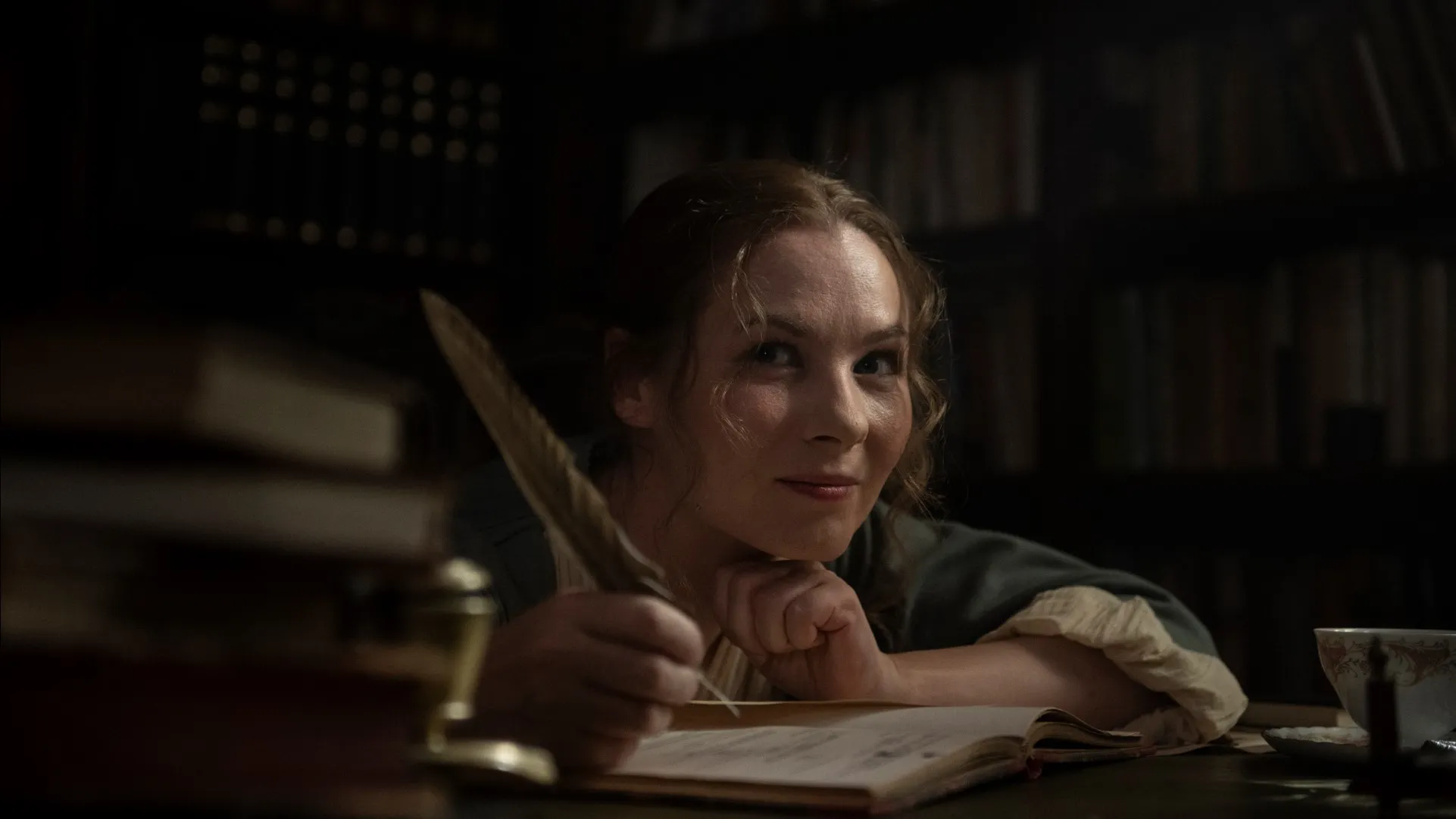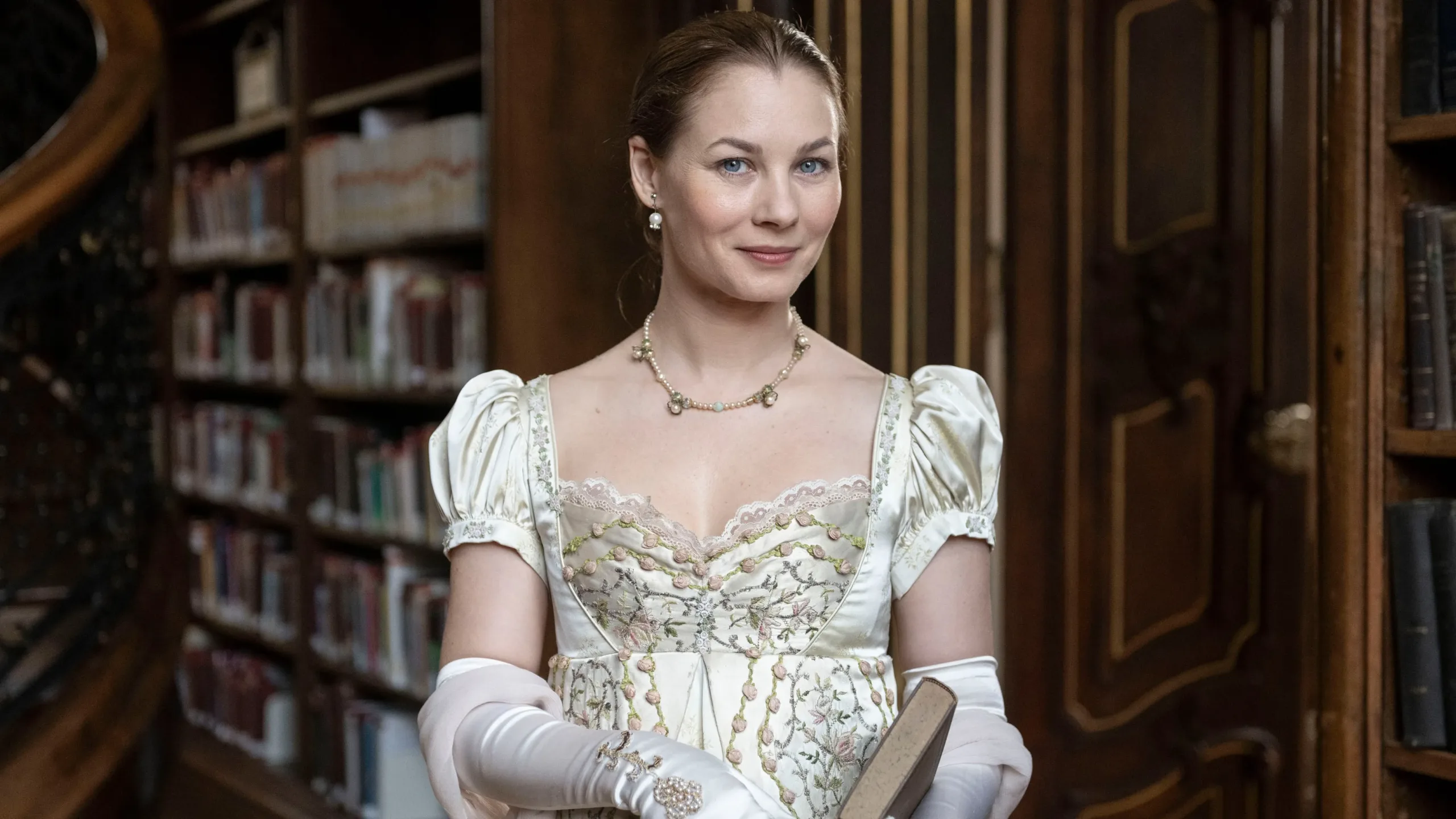To declare a subject a “genius” in a title is a bold opening move. Jane Austen: Rise of a Genius arrives timed for the 250th anniversary of its subject’s birth, positioning itself not just as a biography but as a definitive cultural statement.
This three-part series aims to dismantle the stuffy, tea-and-doilies image of Austen, reassembling her for a contemporary audience as a sharp-witted social critic and a revolutionary force in literature. The program’s ambition is clear: to move beyond the familiar romance plots and investigate the mechanics of a mind that permanently altered the novel form.
It sets out on a comprehensive exploration of her life, her meticulously crafted work, and her creative process. The project undertakes the significant task of explaining why Austen’s contributions from two centuries ago continue to feel immediate and vital in the modern world.
The Documentary’s Framework – A Mixed Media Approach
The series is built in a style now characteristic of prestige streaming documentaries: a hyper-caffeinated collage of sources. Juliet Stevenson’s steady narration attempts to anchor a production that jumps frenetically between talking heads, dramatic reenactments, and clips from screen adaptations.
This editing pace, seemingly designed for a generation accustomed to swiping through content, feels at odds with the reflective nature of Austen’s prose. The most curious structural choice is the depiction of Austen herself. The actress Emőke Zsigmond appears in period costume, writing at her desk or walking through Hungarian fields standing in for Hampshire, yet she never speaks.
There is a deep irony in silencing one of literature’s most celebrated female voices. This decision reduces her to a visual motif, a silent figure in her own story, while a chorus of others explains her importance. The format itself reflects a cultural moment, caught between a desire for serious intellectual engagement and a production style that seems to mistrust the audience’s attention span.
Content and Revelation – Beyond the Bonnet
Beneath the frenetic style lies a substantive biographical and literary journey. The series charts Austen’s path from a rector’s daughter with unfettered access to her father’s library to a published author fighting for financial independence in a world governed by primogeniture. Her bond with her sister Cassandra is presented as a foundational element of her life.
The documentary finds its most potent moments when it shifts from biography to literary excavation. It gives welcome prominence to Austen’s technical prowess, explaining her pioneering use of free indirect speech and the unreliable narrator—tools that reshaped how stories could be told.
The series commendably explores her full canon, lingering on the sharp satire of her juvenilia and early work like Lady Susan. A significant portion is dedicated to re-evaluating Mansfield Park, framing it directly within the political context of the abolitionist movement and the Mansfield Judgment.
This deliberate focus on the novel’s connection to the slave trade feels like a direct attempt to engage with current cultural conversations about art and its entanglement with historical injustices. It forces a re-reading of the novel through a modern lens, asking what it means to find social critique in the quiet corners of a text.
Voices and Perspectives – A Chorus of Admirers
The documentary assembles a broad coalition of Austen admirers to make its case. The voices range from scholars like Dr. Paula Byrne, who provide the academic heft, to popular authors like Helen Fielding, who testify to Austen’s enduring influence on modern fiction.
This blend of expertise and enthusiasm is a calculated choice, designed to make the material accessible. The contributions from actors such as Samuel West and Greg Wise are particularly effective, with Wise’s poignant reflection on his own sister’s death lending a powerful emotional weight to the story of Austen’s final moments.
This curated chorus, however, has its dissonant notes. The program’s reliance on clips from screen adaptations leads to a baffling choice: illustrating Persuasion with scenes from the recent, and critically maligned, Netflix film.
While older, more celebrated versions exist, their absence is conspicuous. One is left to wonder if this was a matter of broadcast rights or a concession to a powerful streaming platform, a decision that favors corporate synergy over a faithful representation of Austen’s work.
Jane Austen: Rise of a Genius is available to stream now on BBC iPlayer in the UK.
Full Credits
Director: Ali Naushahi
Writers: Alice Boorman, Ali Naushahi
Producers and Executive Producers: Alexander Parsonage, David Glover, Rob Coldstream
Cast / Featured Experts: Juliet Stevenson (narrator), Helen Fielding, Colm Tóibín, Candice Carty-Williams, Kate Atkinson, Samuel West, Greg Wise, Tamsin Greig, Paula Byrne, Priya Atwal, Louise Curran, Paddy Bullard, Ken Loach
Editors: Rosie Schellenberg
Composer: Kenny Inglis
The Review
Jane Austen: Rise of a Genius
Jane Austen: Rise of a Genius is an ambitious and intellectually engaging series that successfully re-frames its subject as a sharp-witted literary pioneer. It offers valuable insights, particularly in its analysis of Austen’s craft and her more challenging novels. However, its significant achievements are hindered by a frantic editing style and questionable production choices, most notably the decision to render its protagonist silent. It's a vital watch for its content, but a frustrating one for its form, leaving the viewer with a portrait that is both illuminating and strangely incomplete.
PROS
- In-depth analysis of Austen's literary techniques.
- Shines a light on lesser-known works and themes.
- Features a strong mix of insightful expert and personal commentary.
- Successfully connects Austen's work to broader social and historical issues.
CONS
- A frenetic, almost jarring, editing pace.
- The silent portrayal of Austen feels contradictory and reductive.
- Questionable selection of clips from screen adaptations.
- The modern docu-series format is often at odds with the subject.


















































